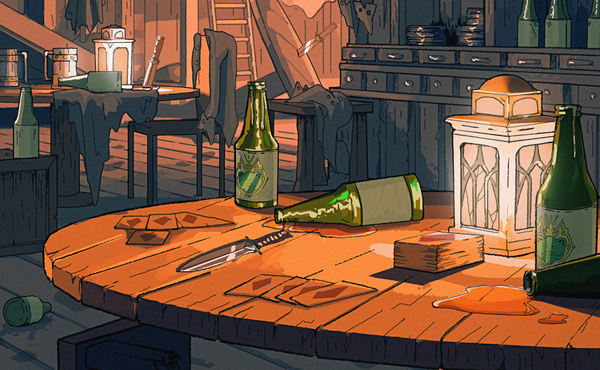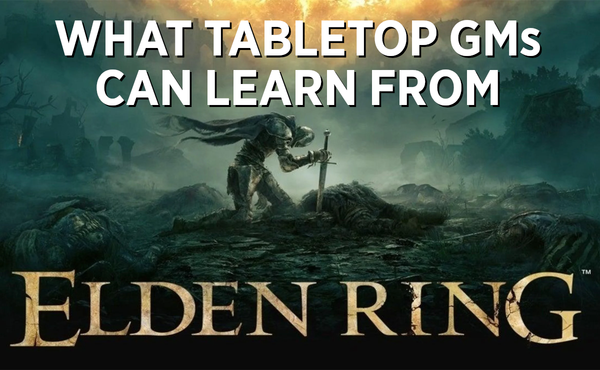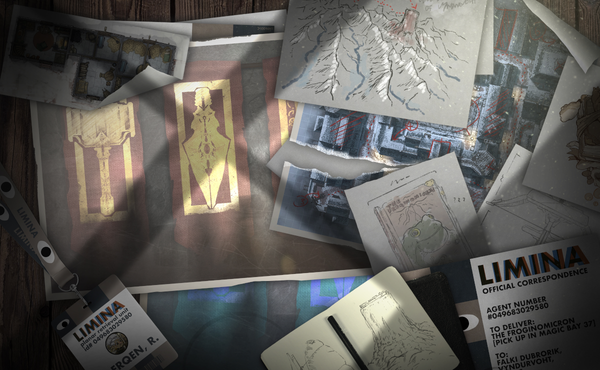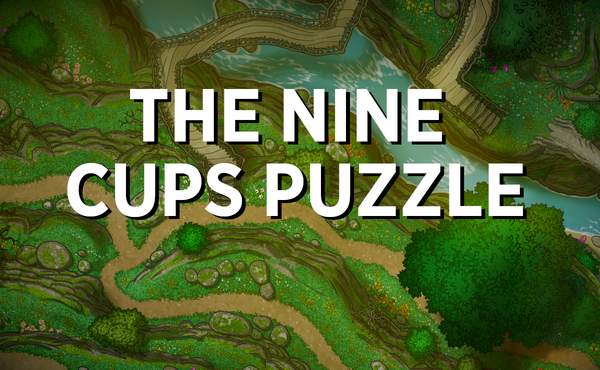Embrace the Inertia of Your Tabletop Game World
The best TTRPG stories explore the frictions between player agency, uncertainty, and inertia.
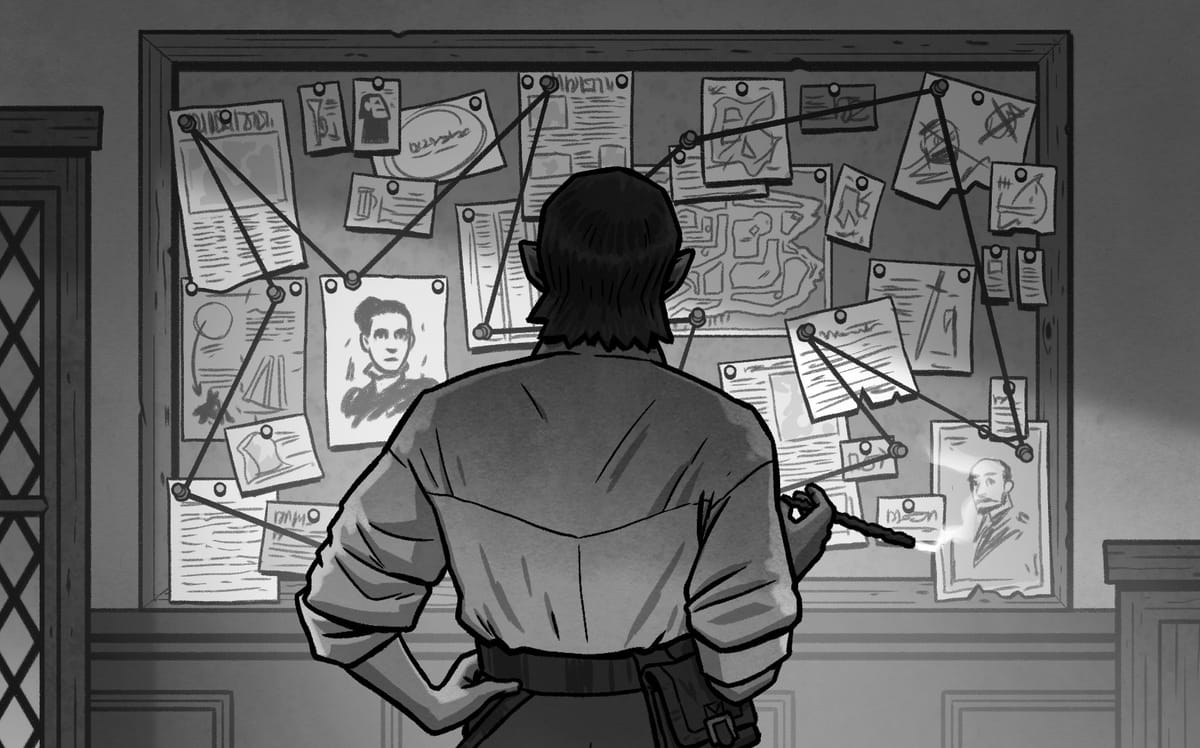
True or false: tabletop RPGs are all about exploring player agency.
I think there is room for different opinions here, but I also suspect most people would broadly agree with that statement. We play RPGs to inhabit characters, make decisions, and influence an imagined world. Player choices—both mechanical and narrative—are what drive the game and the story. What players do in an RPG is make decisions: who to be, where to go, what to say, and how to approach any given problem. “Choice" is thus the central gameplay mechanic of a TTRPG
However, I think a more accurate and universal statement might be something like: tabletop RPGs explore the frictions between player agency, uncertainty, and inertia.
Our DnD Intrigue Spotify playlist highlights the limits of player agency in a world filled with uncertainty.
What do I mean by that? Well, I think agency vs. uncertainty is pretty easy to grasp. In almost all tabletop games, there is some aspect of mechanicalized randomness. Yes, a player might want to hit the goblin, but dice will decide whether or not they succeed. Different RPGs exist at different points along a spectrum from deterministic to totally random in terms of player actions, but the vast majority of systems include some degree of chance.
What about inertia? Inertia is the tendency for a given entity to continue as it is. An object in motion tends to stay in motion, an object at rest tends to stay at rest. In tabletop games, the adventurers—the “heroes,” more often than not—are often framed as the sole beings who disrupt that inertia. Forces conspire to plunge the world into darkness, but the players resist that inertia. They fight back. They change the course of history in small ways and large.
But that’s not friction; that's just pure player agency. The friction comes from the following:
- The world changes because the players fail
- The world changes without the players’ input
- The world changes in ways contrary to the players’ input
That’s what I want to write about today. I believe that the best RPG stories include dramatic events that:
- players knew they could have prevented but failed to do so
- players could not have foreseen or influenced
- players did everything they could to change, but somehow failed anyway
Player Failure
Even if you’re hesitant to accept the rest of my advice in this post, I suspect you’re okay with some degree of player failure in your campaigns. If the adventurers don’t accomplish a goal, then that goal remains unaccomplished. This might be for lack of trying (e.g. the players refuse to accept the quest to kill the witch, and thus the witch remains alive) or because they tried but did not succeed (e.g. the witch was too powerful, the party had to retreat, and thus the witch lives).

Player failure is a necessary consequence of allowing for choice. In most video games, “failure” isn’t necessarily baked into the narrative. If Mario gets hit by a goomba, that’s essentially a noncanonical run. The only true ending of Super Mario Bros. is the one in which Mario proceeds through all of the levels, defeats Bowser, and saves Princess Peach. One of the joys of RPGs (tabletop or otherwise) is that a story can accommodate failure.
Unless you always find a way to give the players what they want (i.e. pure wish fulfillment with no gamification, or—alternatively—nothing but fudged rolls), they will occasionally fail. Failure and the possibility of failure are two of the great motivators in a campaign. Players want to succeed, and if they fail, they want it to be narratively fulfilling. A partial success (e.g. they killed the witch, but not before she cursed the king) can often be more satisfying than a storybook “total victory.”
The one potential exception here is the TPK (total party kill). A TPK is not just “player failure,” but absolute failure. It can often mean the campaign just ends right then and there. I don’t think this has to be the case—maybe a previous contact revives the party, perhaps eerily similar heroes take up their cause, or maybe you jump forward 20 years as the party’s successors avenge them—but it is a tricky tightrope walk.
In either case, I suspect I don’t need to explain this much further. If you buy into the fundamental idea of tabletop RPGs, you’re probably okay with some amount of player failure.
The World Moves On
Most campaigns have inciting incidents. Some rebel army invades, a great evil awakens, and so forth. In many campaigns, however, that is the last time that the world state progresses without the influence of the players. The party moves from city to dungeon to new and newer region while completing quests and inching toward their ultimate goal (defeat the BBEG or whatever). Local events may be newsworthy, but there is often little sense that events are occurring elsewhere or outside the party’s control.
I would argue that any ideal campaign involves large shake-ups to the narrative that occur purely as a result of external forces. People should move, nations should go to war, weather should batter cities, and the players' efforts should be assisted or hampered all the time. Big things should happen exogenously.
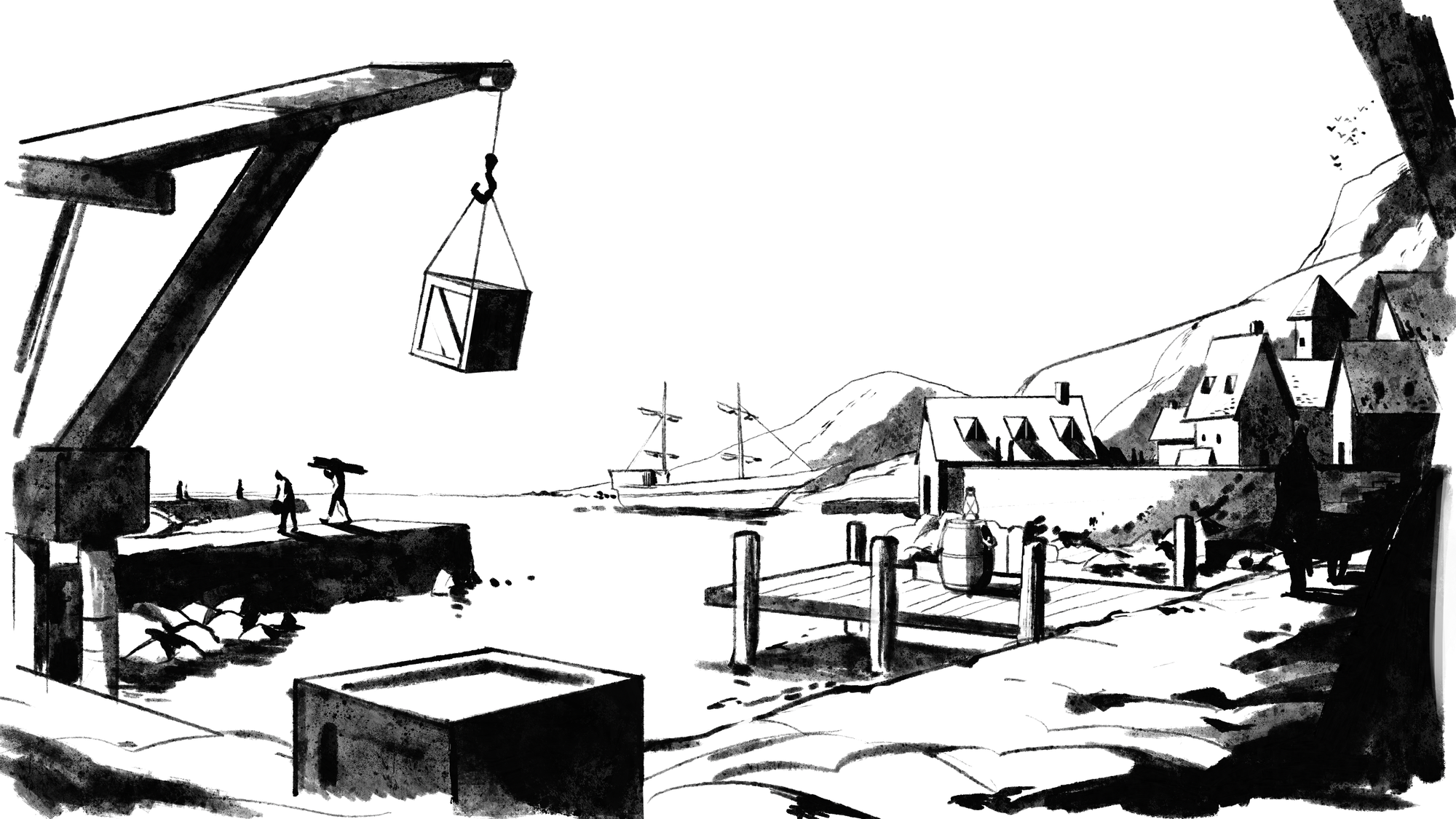
Let me give an example:
I’m running a campaign in a pseudo-Wild West medieval frontier. The party has been working to clear their name after a corrupt government got dirt on them. They’re trying to be heroes in a mostly uncaring world. They’ve done a string of good deeds all across the frontier. Upon returning to the frontier’s largest city, they’ve found that an imperial kingdom has just deployed an army to claim the entire territory by force. Misery will undoubtedly follow.
Did the party “fail” in some way to prevent this invasion? Not at all! They simply had nothing to do with it. Their good deeds are entirely separate from the fact that an empire feels like doing some brutal and rapid colonialism. Are the PCs frustrated? In-universe, yes. Are the players frustrated? No, of course not! This dramatic event has shifted the entire tenor of the campaign, and suddenly their options are much more desperate. The stakes have been raised, and even though they had nothing to do with this power play, it’s not as though it’s unrealistic or unfair. In fact, I’d been foreshadowing the potential of a proper invasion since our Session 0.
The world has inertia. If the PCs never existed, the war would have still come. If the PCs had done everything in their power to prevent this war… there’s a strong likelihood the war still would have come. Their agency still matters, but that doesn’t mean they can control the entire universe via their will.
The World Rejects the Players
Here’s where we get spicy.
Even if your players do everything in their power to effect change, and even if they succeed, that does not mean that their efforts will necessarily stick. Imagine that previous scenario in which the players are ordered to kill a witch. They go and find the witch. They find she has reasonable demands. They spare the witch. They convince the town that the witch is not evil. They leave and go do some other adventures. They return to the town and find that the townsfolk have killed the witch anyway. The townsfolk could not be swayed.

Did the party fail? Well… not exactly. They spared the witch, but that doesn’t mean that you, as the GM, have to keep the witch alive indefinitely. The world has inertia, and sometimes that means your party’s singular act of empathy cannot undo generations of distrust the town has for witchcraft. This is not rejecting player agency; it’s staying true to the world.
How and when you counteract player agency will depend quite a bit on the nature of the campaign you’re running, as well as the rest of your tabletop philosophy. If you’re running a heroic fantasy campaign about killing explicitly evil monsters in a fundamentally good world, I suppose it’s fine (if a bit bland) to just go ahead and say that anything the party does is more or less permanent. They kill the evil God, and the evil God stays dead, and none of the evil God’s former followers rebel. Put a bow on it.
Likewise, if you’re running a “cozy” adventure, or one in which multiple people have to share GMing responsibility, it may feel mean-spirited or deceptive to undo a choice that the party or a particular PC made. If your primary goal in playing TTRPGs is self-actualizing or therapeutic play, then maybe this is the wrong philosophy for you.
The purpose of respecting your world’s inertia is to emphasize the fact that your party are not the only beings with agency. Change is difficult! As such, when your players succeed in truly, deeply, fundamentally altering some fundamental truth of the world—deposing a despot, altering the nature of magic, or ending a war—it will feel all the sweeter.
Some narrative genres emphasize inertia more than others. Grimdark fantasy, Wild West fiction, and neo-noir tend to be all about how difficult it is for “heroes” to ever make the world better. Even if you don’t want to put a label on your campaign’s genres, try to think about whether prioritizing inertia over player agency would improve the narrative.

Mechanicalizing Inertia
Thus far we’ve covered:
- player agency vs. uncertainty (rolling a die)
- inertia without player agency (events happen without your party doing anything)
- player agency vs. inertia (it is difficult to effect change)
But what about inertia vs. uncertainty? I think this is where you have an opportunity to make partial failure more fun. Yes, sometimes the players try to change the world, but the world will fight back. However, who is the final arbiter of which side wins? Is it GM fiat (i.e. the GM says the townsfolk kill the witch, and therefore they do)? Or is there a more rewarding solution?
As a GM, you are allowed to decide which changes are unlikely to stick. Your players want the world to change, but you get to decide the world’s tendencies. Is this a world where revolution is inevitable? where bad men never face justice? where people refuse to learn? Or is this a pliable world where regular people really do change? As the architect of your campaign world, you are absolutely justified in answering these questions in whatever way makes sense to you. However, players may not be stoked if you keep just deciding that they can’t do anything. A great way to reconcile this issue is to let dice decide.
Let’s go back to the "kill the witch" quest. The party decides to spare the witch. You, as the GM, allow them to do so. Upon the party’s return to the town, you tell the players, “despite your best intentions, the townsfolk are overwhelmingly likely to have killed the witch anyway. However, I am going to let chance decide.” Have your players roll a die and tell them the threshold they must meet in order for the townsfolk to have not killed the witch.
“But Will,” you say, “isn’t that just a retroactive Persuasion check?” Sort of (!), but context matters. You are not telling your party, “roll to see how well you persuaded the town to not kill the witch.” You are saying, “I know what’s likely to happen in this world, but nothing is impossible. Let’s let fate decide.” Crucially, nothing on your player’s character sheet should let them impact this role in any way. This isn't about how persuasive they were in the moment; it's about how stubborn the world is, independent of individual skill. No skill bonus, no magic power, no plot-altering token. This is simply inertia vs. uncertainty. Your players will be much more satisfied with this result—especially knowing the stakes and the odds—than if you had just decided for them.

